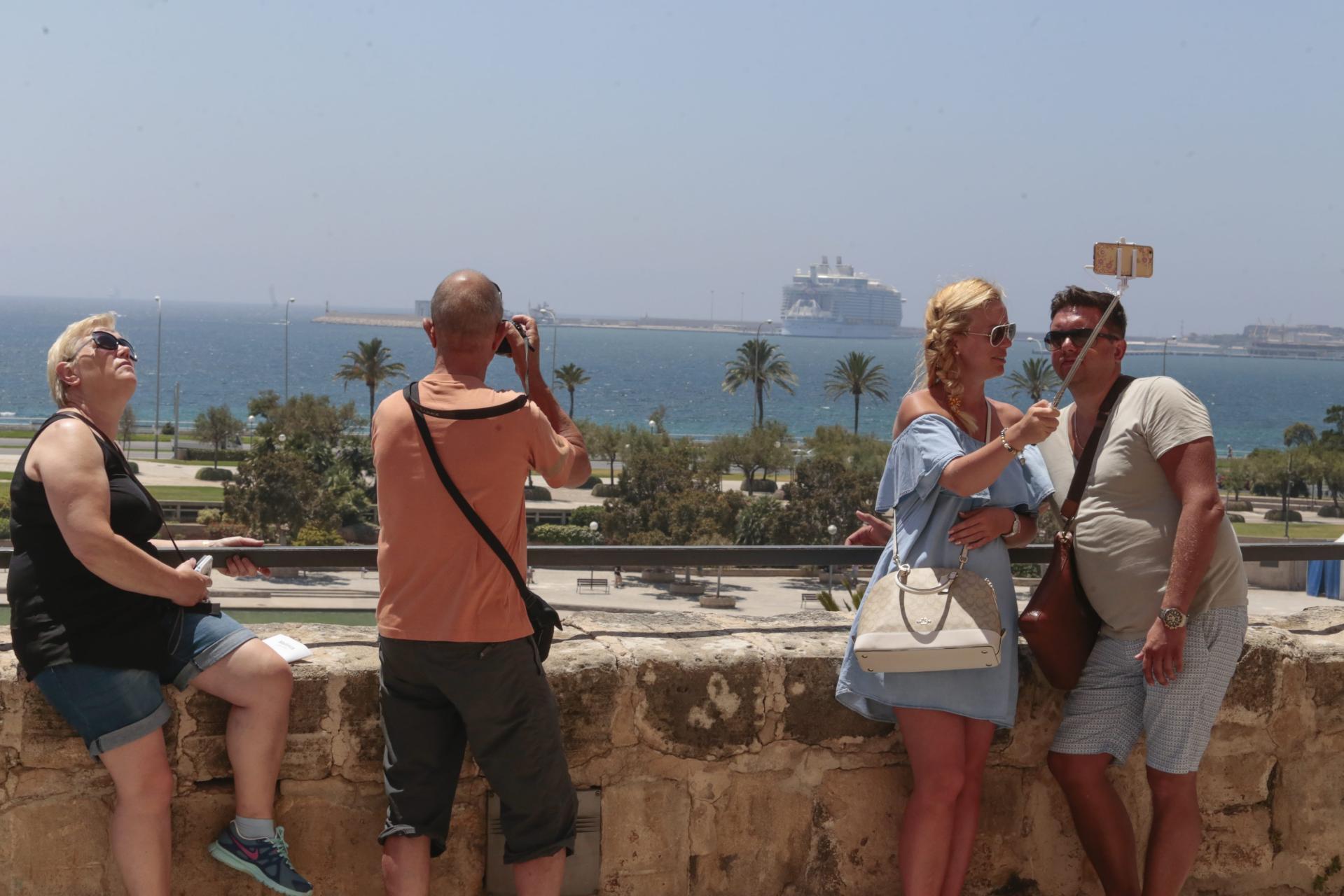The senior partner in the Balearic government and Council of Mallorca coalitions is PSOE. The spokesperson for the party's executive is the mayor of Calvia, Alfonso Rodríguez. On Friday, he disagreed that now is the time to limit the number of tourists. "Fewer tourists? No."
He added that there needs to be continuing promotion of the Balearics but with a focus on seasonal diversification. "It is time to influence the low and medium seasons." Rodríguez highlighted "the success of the management" of tourism in the Balearics in the first year without limitations since the pandemic and referred to the good results in terms of job creation.
PSOE in the Balearics will hold a meeting of its executive on Monday, a first step in the party's election campaign. Where tourism is concerned, this meeting comes shortly after the Real Mallorca stadium naming-rights fiasco, which exposed differences between PSOE and coalition partners Més and Podemos.
For Més, the environment minister, Miquel Mir, said earlier this week that there is "obvious saturation" and "unprecedented overcrowding" of tourism and made a case for reducing tourist numbers. At the same time as he was making his comments, President Armengol of PSOE stated that it was clear that "we do not wish to grow tourism more", insisting that "brave" measures, such as the recently approved law for tourism circularity and sustainability, are representative of a policy of "quality and not quantity".
It will be a long campaign.


1 comment
To be able to write a comment, you have to be registered and logged in
I'm unaware of anyone characterizing the strategy as "quality not quantity". Except you. The term that has been used is "Quality *over* Quantity". What it refers to is the emphasis on delivering a quality experience, rather than simply packing them in like a cattle drive to the cheapest in town. If *quantity* suffers due to that approach, then so be it. But it doesn't preclude having "quantity of quality". If so, all the better. Nobody's against that (except those who don't get it). And frankly, it appears that we may well end up with both *quality* and gainful, sustainable *quantity*. Your rephrasing of that term alone is suspiciously daily express style spin. It's as if the entire narrative is founded on a single false premise. A common express tactic.